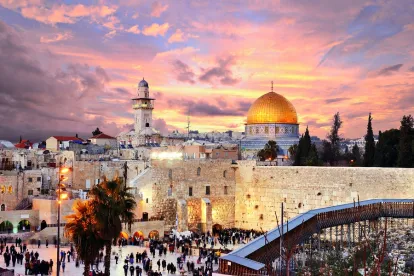The substantive political and social upheaval that follows crises and disasters is a well-documented phenomenon. The worldwide coronavirus outbreak is likely to be no different, particularly when combined with an ensuing global recession.
Arguably we may have already seen one of these substantive changes with the announcement of the Abraham Accords — a peace deal between Israel and the United Arab Emirates that will see the two countries normalise their diplomatic relations for the first time since the creation of Israel.
This significant step puts the UAE on course to be only the third Arab League nation to have full diplomatic ties with Israel, after Egypt (1979) and Jordan (1994), and follows months of negotiations, against the backdrop of improving relations between the two countries.
Whilst this move has led to rebuke from certain corners, most notably Turkey and Iran — there can be no doubt that this act of statesmanship is a major and positive step for the UAE, Israel and the wider region.
For the UAE — given the targeted growth of the UAE’s economy and population — it has increasingly large demands in terms of water technologies, clean energy, telecommunications, defence and security, food security and other fields in which Israel has a clear comparative advantage and which a collaborative approach would be welcome. More broadly, the trade potential between Israel and the UAE may be notable and may include the introduction of direct flights and tourism. Further, it is no secret that the UAE has been working with Israel in recent years to achieve their aligned objectives of countering Iran’s regional influence and combating Islamic extremism.
When we consider the effect for Egypt which in 1979 signed the Israel-Egypt Peace Treaty — there is no doubt that it had substantial stabilising effects on the Egyptian state. The conclusion of hostilities with Israel strengthened key sectors of the Egyptian economy that had been materially affected by the struggle with Israel — notably, its oil sector (and more latterly its gas sector), the Suez Canal and tourism.
For Israel — this is a big political win which many thought could never be achieved without significant concessions being given to Palestine. This new deal shatters the current status quo under which Israel was seen as a “pariah” by its neighbours and instead demonstrates Israel’s importance as a political, strategic and economic partner.
For the region — beyond the obvious long term effects of peace, stability and economic trade between nation states — this US-brokered breakthrough will advance peace in the Middle East region. As part of the agreement, Israel has agreed to suspend the annexation of parts of the occupied West Bank which could be key to defusing wider tensions in the region.
More immediately the two countries will collaborate on healthcare needs and work together on a COVID-19 vaccine which may “help save the lives of Muslims, Jews and Christians throughout the region.”
At today’s date, the UAE does participate in the Arab League’s Israeli Boycott, albeit its application of the Boycott has in practice only extended (in a meaningful way) to the imposition of the primary boycott and not the secondary or tertiary elements of the Boycott. As a consequence of the peace accord, we expect the UAE’s participation in the Boycott to end, in the same way as the Israeli peace treaties with Egypt and Jordan brought an end to their participation in the Boycott even though both countries remain members of the Arab League. What we await to see is whether the UAE’s new relationship with Israel brings about similar outcomes in respect of Israel’s relations with any of the other GCC countries. It is notable that both Bahrain and Oman have publically praised the move by the UAE and their future actions will be interesting to follow.
The next steps are to negotiate and finalise agreements on what a bilateral relationship will look like and the path towards normalisation. However, with the Middle East region currently bruised from the double black swan events (COVID-19 and the oil crash), it seems likely that the UAE and Israel will hope to move efficiently and swiftly to finalise a deal that looks positively to the future of the two countries.




 />i
/>i
